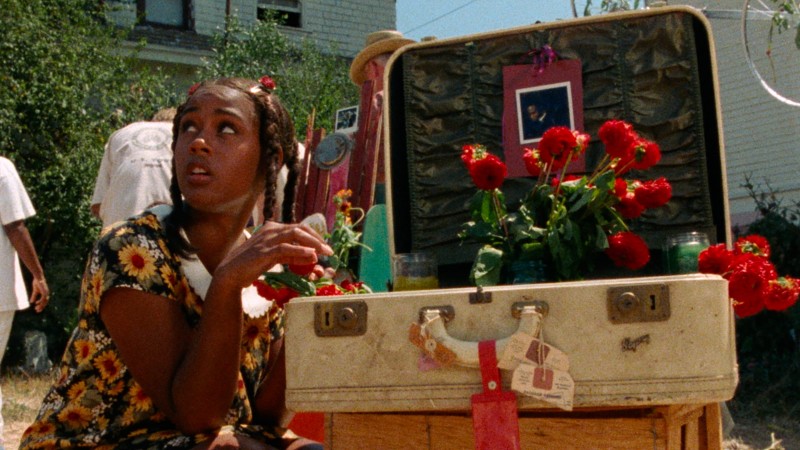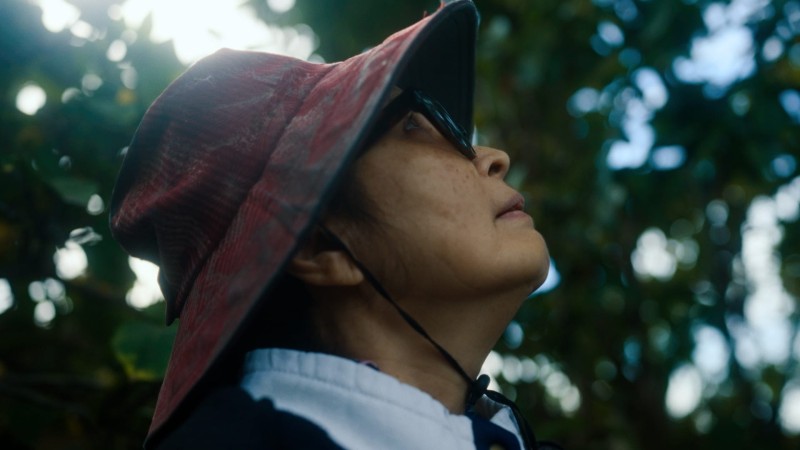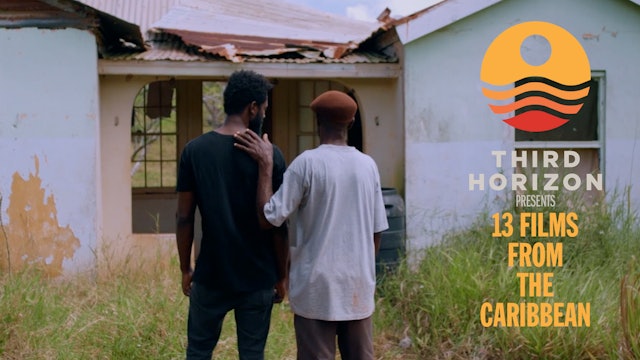
Ever since he began working with the Miami-based film festival and collective Third Horizon in 2016, Jonathan Ali has been finding ways of celebrating Caribbean cinema and how it captures the irreducible complexity of the region and its diaspora. He has brought his expertise to bear in a new series of films now playing on the Criterion Channel, which highlights adventurous artists who undermine the romantic and exotic tropes that have shaped mainstream images of the Caribbean and expose the centuries of violence it has endured. The lineup showcases a wide range of work, including short, poetic essay films built from archival material and features that stage a view of Caribbean modernity in a variety of modes. Viewers looking for a place to start should check out Nelson Carlo de los Santos Arias’s Cocote (2017), about a man returning home after the death of his father, and Vashti Harrison’s Field Notes (2014), a poetic account of spiritual beings in Trinidad and Tobago that questions the ethnographic gaze.
To gain a deeper understanding of Ali’s curatorial approach, I spoke with him about the challenges of cinematic representation and the need to think beyond its limits.
I want to start with the name of your festival and collective, which is also the name of the program you’ve curated on the Criterion Channel, Third Horizon. I immediately thought of concepts like Third World and Third Cinema. Could you describe what the name says about the mission that drives your work?
The name was something that Jason Fitzroy Jeffers, who is one of the founding codirectors of the festival, came up with. It actually began as an imprint for the music that Jason was making at the time. He comes from Barbados, and after migrating to Miami, he got into filmmaking and, along with a group of other Miami-based Caribbean filmmakers, turned Third Horizon into a collective. The festival was born out of that.
You are right that there are connections between Third Horizon and the Third World, the concept of Third Cinema, and the idea of the Caribbean being this third space. Third Horizon is inspired by an idea of the Caribbean as—as C. L. R. James once put it—the first place where you had this unintended experiment of bringing different groups of people from all over the world together and forging the first modern capitalist society, a slave plantation society with migrant labor. This is something that, of course, we as Caribbean people are keenly aware of, and it feeds the way Third Horizon approaches what we do and the way we foreground the Caribbean as not only the place where we come from but also a way of thinking about the world.
The selections for the Criterion lineup have some shared themes—the archive, slavery, freedom, history, ritual—and there’s also a lot of resonance among them in terms of formal experimentation and the question of difference. What was your approach to curating this series?
There were a number of different factors that went into choosing the films for Criterion. The underlying ethos is one that I alluded to earlier when I mentioned our conception of the Caribbean as a crucible of the world, this place where so many cultures have come together, merged, synchronized, and produced another culture, one that has many facets and strands. It can’t be reduced to any one particular idea. We went into curating this lineup knowing that we wanted it to reflect the festival’s programming in general. And the festival has always had to recognize the fact that the Caribbean is not just a particular region—it’s not only the English-speaking Caribbean. We’ve always programmed cinema from the Spanish-speaking Caribbean, from the Dutch- and the French-speaking islands, and from Haiti.
We’ve also always been aware of the various diasporas that have come out of the Caribbean. So what we program is not only work that comes from the region, but work from the diverse Caribbean diaspora, largely in the global north, and also from diasporas descended from Africa, India, and elsewhere.
We embrace artists who are working on the frontiers of formal experimentation, as well as those making films that are politically aware. Form is politics—the two are inseparable for us. While representation is important, representation for its own sake is not something that we’re interested in. Representation is a means to an end, not an end in itself.
A lot of the films play with what it means to represent or how one can represent. Last night I watched Paroles de nègres [Sylvaine Dampierre, 2021], a documentary in which the workers at a sugarcane mill read transcripts from an 1842 court case, calling into question how the past lives in the present. Could you pick up from what you just said and tell us a bit more about what the political import of a film can be?
So much of what has been given to us as cinema in the past, and what continues to exist in a capitalist-driven mode of production, can be quite toxic. The idea of making cinema for yourself began with replicating these imperialist modes of seeing, a certain kind of gaze. When you’re talking about traditionally marginalized or peripheral subjects getting the ability to tell their own story, it is a question of resources and economics. When you don’t have the resources that dominant cinema industries have, do you attempt to replicate their forms with inadequate resources, or do you seek something new?
This is what the Caribbean can offer: a new way of seeing the world and new modes with which to relate experiences. So much of the cinema that we privilege is what you might call a “fugitive cinema” that runs from traditional, often harmful ways of representing Caribbean experience and Caribbean reality.

Is there a film that stands out to you in this series?
I would point people to the feature film Cocote, from the Dominican Republic. The Caribbean as a place of hybridity and creolization is very much baked into that film’s form. The filmmaker calls it creole cinema, mulatto cinema, a mixed cinema. There has been a history of simplifying the Caribbean—so often as sun and sand—to make it palatable. Even cinema that might seek to go beyond those tropes still seems to want to play to certain ideas of the Caribbean that will flatter a global-north audience and make it easy for them to consume. A film like Cocote doesn’t seek to do that. It’s noisy. The sound design is very important in foregrounding the violence the Caribbean has known: five hundred years of systemic violence, including the extermination of the Indigenous people, the violence that slavery wrought, the violence of underdevelopment, and the continuing violence in a new globalized, capital-driven era where the majority of people remain economically deprived.
How do you think diaspora disrupts or interrupts the bounds of regional cinema?
If you take a longer view, you’ll see that the Caribbean is a region where practically everyone who’s there who is not of Indigenous ancestry is an index of somewhere else. Even if it’s not something that people actively think about, the Caribbean is a transitional space. So the idea of movement and migration within the Caribbean and out of it has always existed. People there or in the diaspora contain different ideas of home in their heads. Home is not necessarily one place, or a place. The quintessential Caribbean diasporic thinker, Stuart Hall, once said that identity is not about roots, it’s about routes—the Caribbean person is always following a route and not necessarily tied down to particular roots. I should make clear this can be both a strength and a weakness. Because the Caribbean is a site of such historical trauma, many people have an ambivalence toward it. All of that complexity is contained in these films.
I appreciate you reframing my question; it’s almost as if the Caribbean itself always already disrupts or interrupts any regional framework. Whether we’re in the Caribbean or the United States or Canada, many of us have had the Hollywood mode as a predominant source of film and, right now, in a year when television and film workers went on strike, we’re seeing the curtain of the industry being pulled back. To what extent might Caribbean filmmakers or Caribbean audiences feel the impact of this fight to improve working conditions?
This is something that I have been thinking about since long before the strike. I alluded to it in my programmer’s message in last year’s festival guide. As you said, the curtain is being pulled away, and we’re seeing how exploitative this cinema and this mode of working has been and continues to be. An opportunity exists for filmmakers: You don’t have to choose to be a part of the system. You can choose a different way of working. If you choose a more collaborative, collective form of working, which is in itself a political act, then there’s only a little distance between that and making a kind of formally political cinema.
At the festival, of course we celebrate great cinema, but more than that, we celebrate the filmmakers, who we believe are working to bring about a change in the way people approach cinema.
I’ll give an example of what’s been happening in recent years. The pandemic forced a lot of cinema to stop being made in the traditional way. Some of the best films that I’ve had the privilege of seeing in the last couple of years are ones that were made under pandemic conditions, including camera-less films composed of archival material.
You only need a couple of photographs to make an amazing film. I don’t want to sound like I’m lecturing filmmakers and telling them how they should work, but if your idea is “I have to represent,” and representation means a certain kind of cinema in the mold of what has come before, then you’re missing the opportunity to do something new and exciting and different. That’s the kind of cinema that excites us. That’s the kind of cinema that we gravitate toward and what we want to share with the world.
More: Interviews

First and Foremost: Rógan Graham on Black Debutantes
The critic and curator talks about working on a program of films by trailblazing Black women directors, which opened at London’s BFI Southbank this year and is now playing on the Criterion Channel.

The Other Side of Apocalypse: A Conversation on We Were the Scenery
In this Sundance-award-winning exploration of war and memory, writer Cathy Linh Che shines a spotlight on her parents, who were Vietnamese refugees living in the Philippines when they were cast as extras in Apocalypse Now.

The Banality of Apartheid: A Conversation with Milisuthando Bongela
In her intensely personal debut feature, the filmmaker and poet investigates the myths that have shaped South African history through a mix of archival footage, poetic remembrances, and conversations with friends and family.

“A Fragile Film Utopia”: Talking with Ehsan Khoshbakht
The director of the documentary Celluloid Underground discusses his life as a curator, Iranian film culture, and the inherent ephemerality of cinema.

